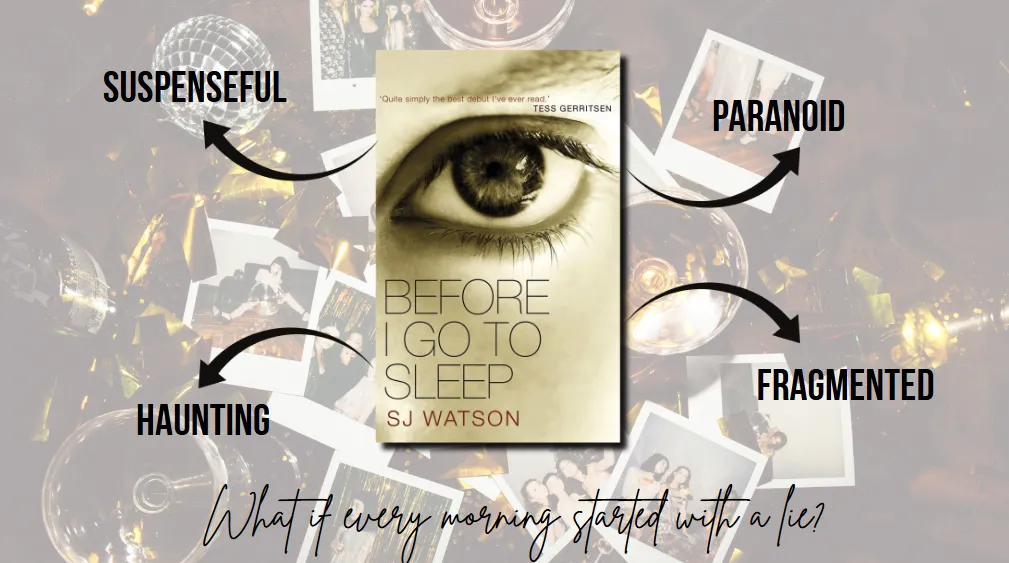
Created using Canva
Have you ever forgotten why you walked into a room? Now imagine forgetting who you are every single morning. That’s the premise of Before I Go to Sleep, a psychological thriller that plays with the fragility of memory, trust, and identity—and throws in a few curveballs to keep you turning the pages (even if you occasionally roll your eyes while doing so).
I went into this book expecting a nail-biting read and I got one—mostly. But like waking up with amnesia, not everything here feels completely real. Let's break it down.

The Premise: Memento Meets Lifetime Drama
The Premise: Memento Meets Lifetime Drama
Our protagonist is Christine Lucas, a 47-year-old woman who suffers from a rare and heartbreaking kind of amnesia. Thanks to a mysterious accident 18 years ago, her brain resets itself every time she sleeps. Every morning, Christine wakes up believing she’s still in her twenties, only to find herself next to a man claiming to be her husband, with a face in the mirror she doesn’t recognize and a life she can’t remember.
Spooky, right?
Thankfully (or maybe not so thankfully), she has help. Enter Dr. Nash, a neuropsychologist who calls her every morning to remind her of their secret meetings and her secret journal—the one thing she can rely on to piece together her past. But here’s the kicker: her husband Ben knows nothing about any of this. Or so we’re told.
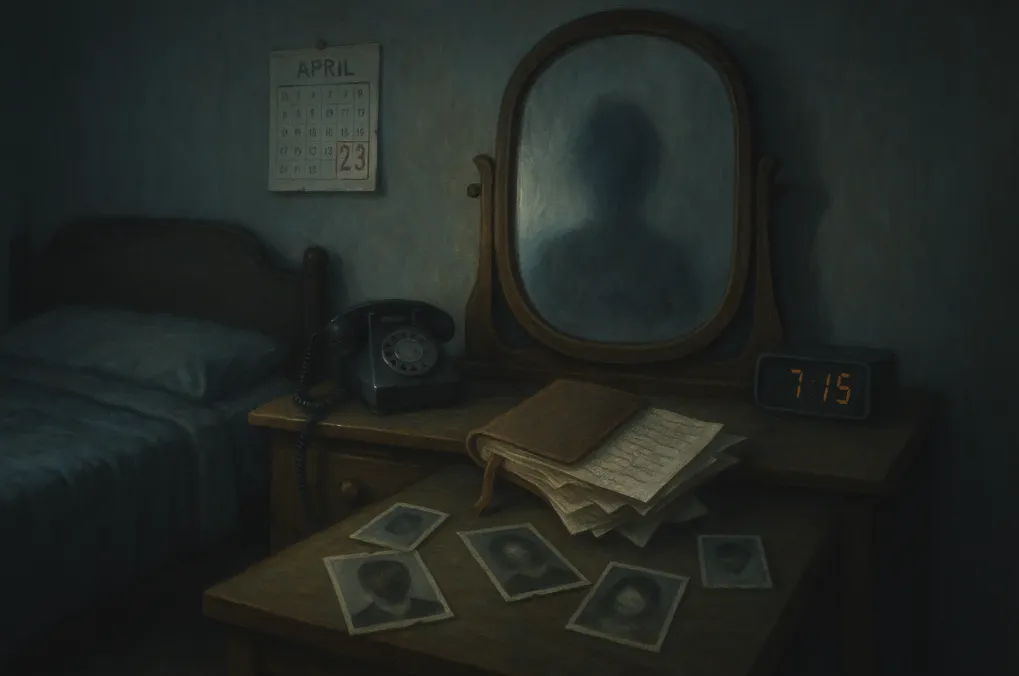
Created using Sora

Christine: A Woman of Many Wakes
Christine: A Woman of Many Wakes
Let’s talk about Christine. She’s vulnerable, confused, and understandably paranoid. But she’s also persistent. Even as the ground beneath her seems to shift daily, she clings to what little she can uncover through her journal. Her frustration and fear are definitely palpable, but I have to admit, her constant rediscoveries started to feel repetitive and a bit tedious after a while. I get that it’s realistic—waking up every day thinking it’s 1999 would mess anyone up—but as a reader, going through the same routine over and over did test my patience.
But while her reactions feel genuine, her internal monologue can feel a little too tidy for someone supposedly just scribbling in a journal. The narrative often reads more like a well-structured story than scattered memory recovery. The result? We feel for Christine, but we don’t quite believe her journal is just a journal.
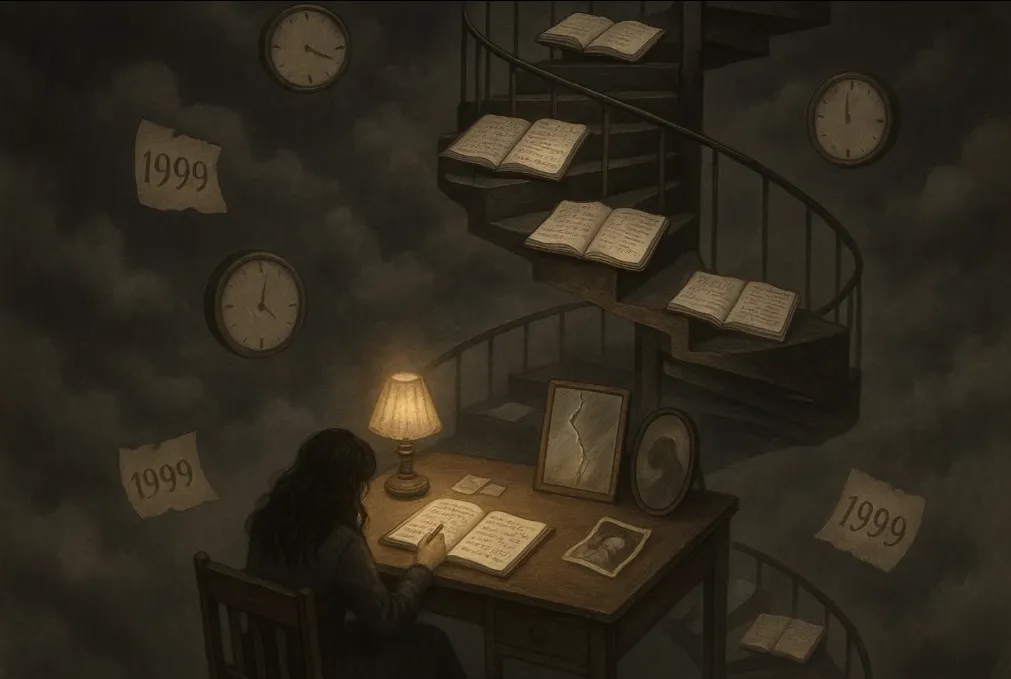
Created using Sora

Ben: Husband, Hero, or Hiding Something?
Ben: Husband, Hero, or Hiding Something?
Now here’s where things get juicy. Ben is Christine’s husband. He says he loves her. He says he’s doing everything he can. He says a lot of things.
But Christine’s journal tells a different story.
As she begins to record her daily experiences, patterns emerge. Lies surface. Contradictions abound. Things don’t quite add up—and neither does Ben. Watson builds suspense masterfully here, making you question everything. Is Ben really protecting Christine… or is he the reason she needs protection?
And then there’s Dr. Nash, the mysterious doctor who appears helpful but is also kind of shady. Why is he sneaking around behind Ben’s back? Is he genuinely trying to help, or does he have his own agenda?
Basically, by the time you're halfway through the book, you trust no one. Not even Christine.
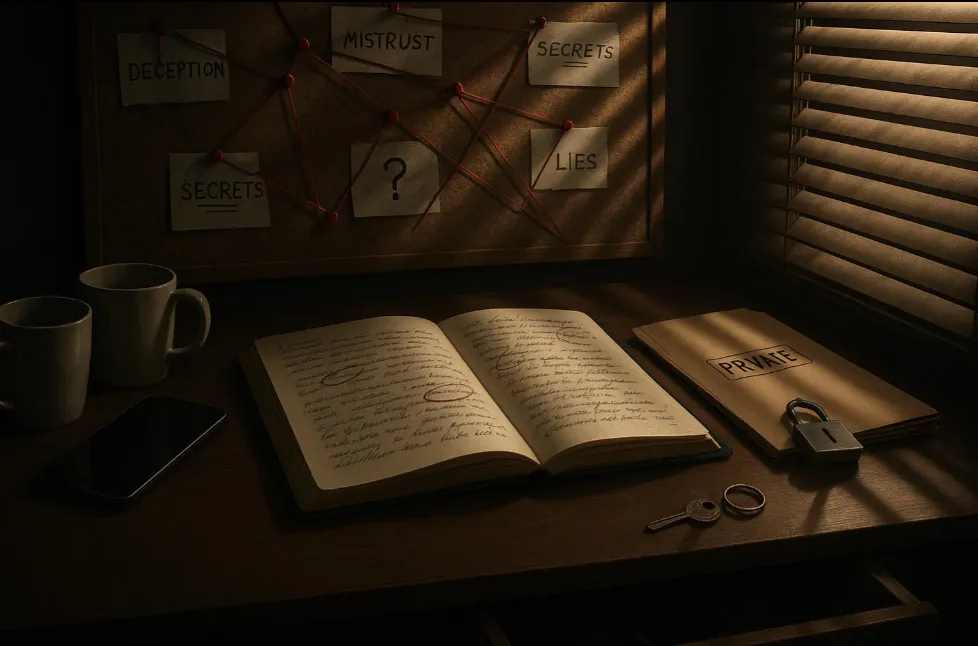
Created using Sora

Pacing, Twists, and That Creepy Vibe
Pacing, Twists, and That Creepy Vibe
From the very first chapter, Before I Go to Sleep hooks you. Christine’s confusion is contagious, and you can’t help but join her in trying to figure out what the heck is going on. The tension is consistent, and Watson drops breadcrumbs and red herrings like a pro. Just when you think you’ve got it figured out, boom—a new twist throws you off.
However…
Some of those twists really had me going, “Okay… no way this would actually happen.” Like, full-on you’ve-gotta-be-kidding-me levels of unrealistic. I mean, I’m all for a good plot twist, but a few of them felt like they were thrown in just for the shock factor, without much grounding in reality. You kind of have to shut off that logical part of your brain and just go along for the ride. Fun? Sure. Believable? Not so much.
The plot leans heavily on the “this could happen!” factor, but the deeper you go, the more you start going, “Hmm… could it though?”
Also, once the “Big Reveal” happens (no spoilers here), the tension kind of fizzles out. The earlier chapters are so deliciously mysterious that the ending just doesn’t live up to the build-up. It’s not bad, but it’s not the mind-blowing conclusion I’d hoped for.
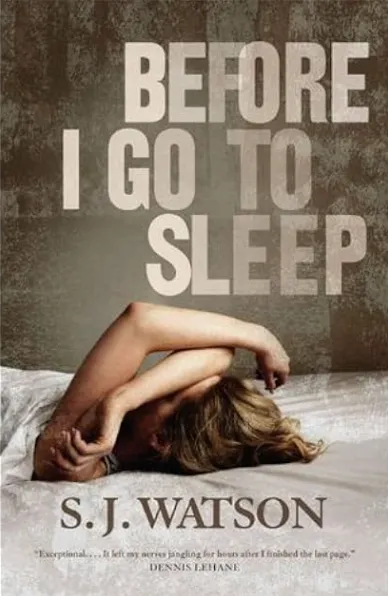

Structure & Style: Diary Drama or Psychological Puzzle?
Structure & Style: Diary Drama or Psychological Puzzle?
The book is divided into three parts:
Christine’s initial confusion,
The journal entries, and
The final confrontation.
The whole journal entry idea is cool—it gives that raw, in-the-moment feel—but it doesn’t always land. Sometimes it feels like Christine’s scribbling down quick thoughts before lunch, and other times it reads like she’s writing the next big thriller. That switch in tone kinda pulls you out of the moment.
I kinda wish Watson had leaned harder into the whole unreliable narrator thing. Christine’s paranoia and identity crisis were super interesting, but it felt like there was more room to mess with our heads. There were these amazing little moments where I was like, “Wait… is she being gaslit, or is this all in her head?” And those bits? So good. I just wanted way more of that mind-bending stuff.

Themes and Takeaways: Who Are We Without Memory?
Themes and Takeaways: Who Are We Without Memory?
This book isn’t just a thriller—it dives deep into the concept of identity. If your memories are wiped clean every day, are you still you? How do you form relationships? Make decisions? Trust others—or yourself?
One of my favorite quotes from the book really stuck with me:
“What are we, if not an accumulation of our memories?”
Christine’s journey is more than just unraveling a mystery; it’s about rebuilding a life from fragments. She’s not just trying to remember what happened, she’s trying to remember who she is.
It’s a powerful theme, and Watson handles it with more finesse than I expected from a debut author. But again, the emotional depth sometimes clashes with the thriller packaging. It’s like watching an intense psychological drama… but with commercial breaks for suspense twists.


What Worked (and What Didn’t)
What Worked (and What Didn’t)
⭐ What I Liked:
The suspenseful build-up. Totally gripping for the first 70%.
Christine’s voice. Vulnerable, determined, and oddly relatable.
The concept. Memory loss + psychological tension = a winning formula.
Themes of identity and trust. Deeper than your usual thriller fare.
Realism in emotions. Christine’s confusion, fear, and loneliness felt so real.
❌ What Fell Short:
Repetition. Some scenes felt like déjà vu in a not-so-good way.
Believability. Let’s just say the “Big Bad Twist” might have trouble passing a reality check.
Journal format inconsistency. Reads more like a novel than a journal.
Ending. It didn’t crash and burn, but it landed with a soft thud instead of a bang.
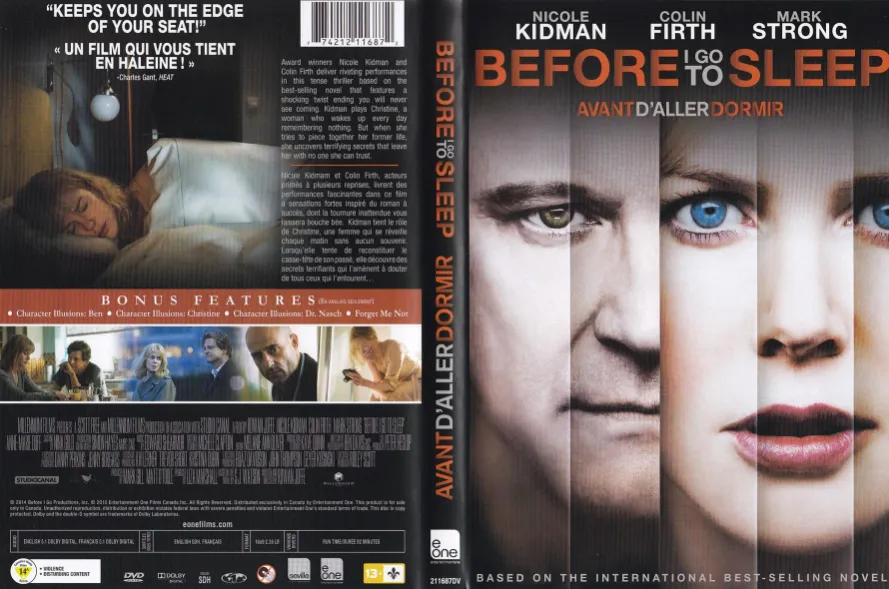

Final Verdict: A Compelling Read, If You Don’t Overthink It
Final Verdict: A Compelling Read, If You Don’t Overthink It
So here’s my take: Before I Go to Sleep is one of those books that hooks you hard, messes with your head, and keeps you flipping pages—but it doesn’t quite stick the landing. The premise is gold, the execution mostly solid, and the emotional journey surprisingly affecting. But some structural flaws and believability issues keep it from being a full-blown knockout.
That said, if you’re a fan of psychological thrillers, memory-twisting plots, and books that make you question everything—this one’s worth a go.
Rating: 3.5 stars out of 5.
Not perfect, but definitely entertaining.
P.S. Bonus points to Watson for writing such a convincing female POV. I genuinely thought the author was a woman. That alone deserves a slow clap 👏
